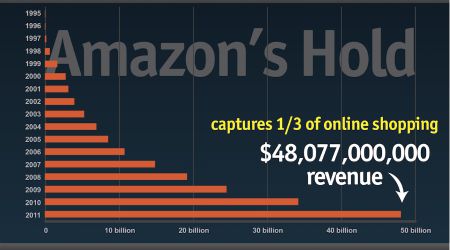Best Ways to Prevent Data Leaks from Within Organization
Hackers are considered to be one of the biggest threats for organizations because they are capable of stealing and publicly leaking your data. However, there is one more, even bigger threat to your company – your employees. Employees are generally aware of the ins and outs of the company and are pretty knowledgeable about company’s sensitive information. They can leak it anywhere, anytime and you wouldn’t even see it coming. IT can try its best to stop it from happening, but without proper tools, they can’t really do anything. This is where you, as an employer, need to step up and use one of the following ways to prevent data leaks from happening.
Employees are generally aware of the ins and outs of the company and are pretty knowledgeable about company’s sensitive information. They can leak it anywhere, anytime and you wouldn’t even see it coming. IT can try its best to stop it from happening, but without proper tools, they can’t really do anything. This is where you, as an employer, need to step up and use one of the following ways to prevent data leaks from happening.
Monitoring Tools
Employees can go off the rails at any time and leak important documents to the competitors. This, of course, can cost your company big time. To avoid these potential leaks from happening, you should seek help from monitoring tools. They are available in different shapes and sizes, but their main purpose is to keep your data safe. Call and text message spy solutions enable you to keep an eye on all of your employees’ smartphone activity, which can help a lot. Then there are computer monitoring tools that let you know what happens on employees’ computers while they are at work. Both of these tools make you an overseer of the company and allow you to see each and everything that goes on there monitor your employees ‘activity without having to leave your office. Employees also know that they are being watched, which forces them to refrain from doing anything that could get them in trouble.
Limit Access to Data
Every department and every employee has their own role to play. They should not be given access to more data than what is required for performing their work duties, there should be limitations. When you give open access to everyone at the company, then you are practically inviting them to leak your company’s information. The data that is marked as sensitive or critical is playing a major role in gaining competitive advantage and should be kept under wraps. However, when it’s out there for everyone to see, then the likelihood of it staying a secret is close to non-existent. Even if the employees are not intentionally leaking it intentionally, they may still do it. This is why you should always limit employees’ access to data in the workplace.
Encrypt Sensitive Data
In small and medium enterprises, there is very little concept of data encryption. All of their documents, information, and data are available on an open platform which can be accessed by anyone at any given moment. This is the wrong way of doing things. If you really want data prevention, then you need to encrypt all of your company’s data. If you can’t afford that, then you can at least encrypt your firm’s sensitive information. A large corporation can afford to lose some money due to data leaks. However, small and medium enterprises have very little room for complacency. A small mistake can mark the end for them. Therefore, to save yourself and your company from all of the security related trouble, it is highly advised you to encrypt the company’s data.
Read More:

IntelligentHQ Your New Business Network.
IntelligentHQ is a Business network and an expert source for finance, capital markets and intelligence for thousands of global business professionals, startups, and companies.
We exist at the point of intersection between technology, social media, finance and innovation.
IntelligentHQ leverages innovation and scale of social digital technology, analytics, news and distribution to create an unparalleled, full digital medium and social business network spectrum.
IntelligentHQ is working hard, to become a trusted, and indispensable source of business news and analytics, within financial services and its associated supply chains and ecosystems.


























